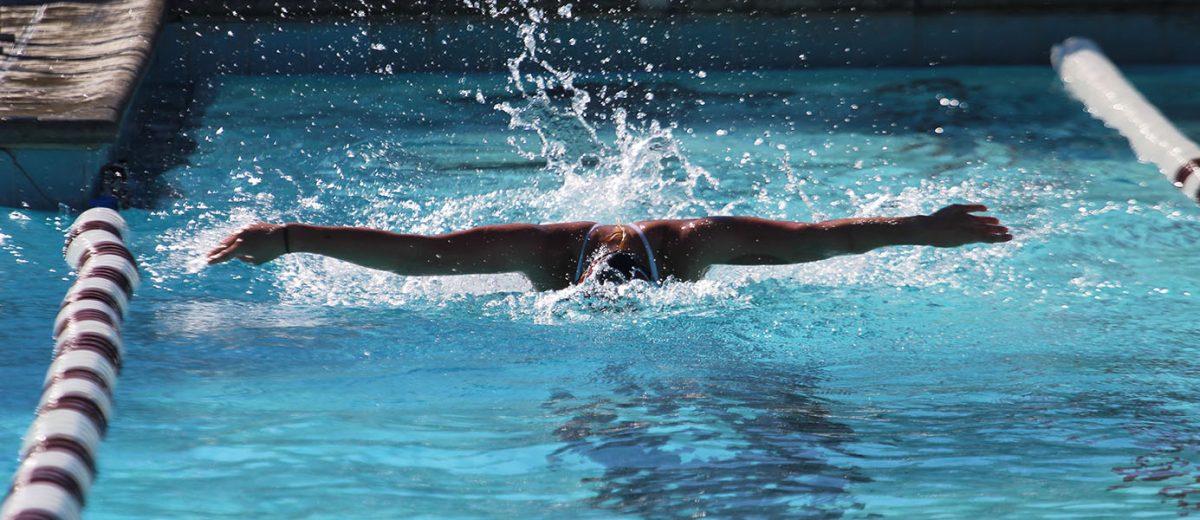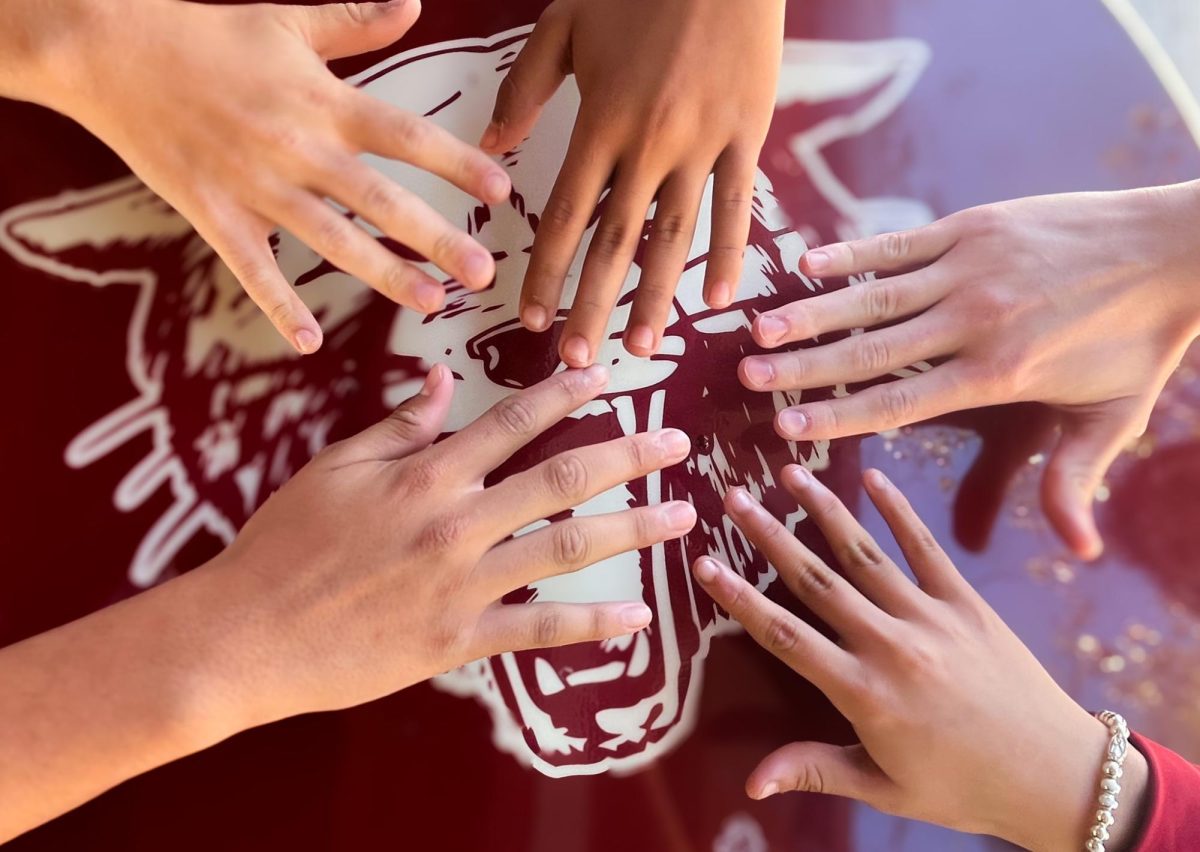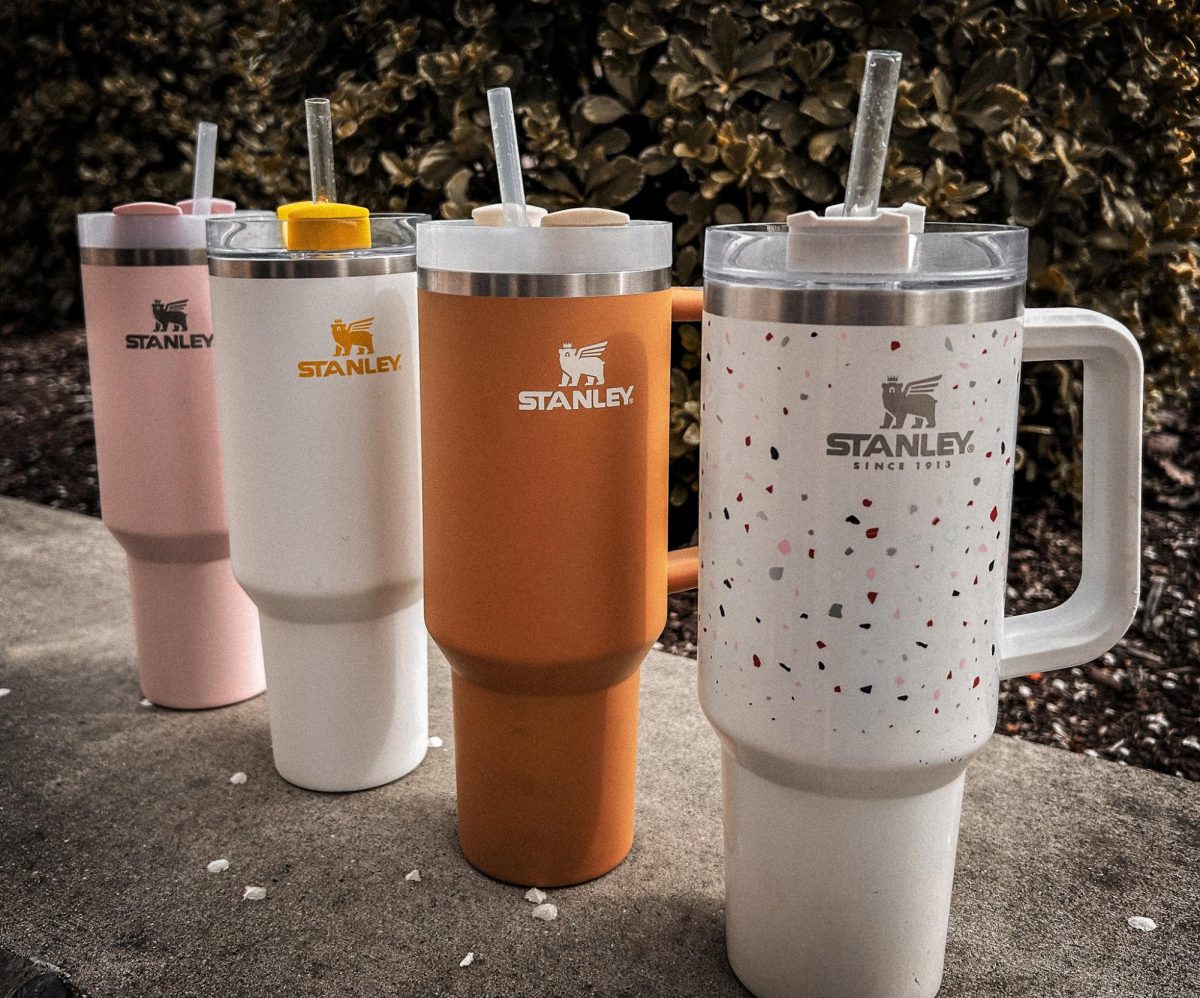Athletic success demands a certain degree of academic sacrifice
Every Wednesday of water polo season, junior Lottie Abascal arrived at PRHS at approximately 9:30 a.m. For the first 90 minutes of school, she wasn’t taking a math exam, or doing science experiments, or writing an English essay; she was swimming laps at the Paso Robles Municipal Pool as part of 1st-period Aquatics PE.
For many of the sports offered at PRHS, athletes must enroll in a PE class specifically catered to their needs. Water polo players are enrolled in Aquatics PE; cheerleaders take 6th-period Athletic Cheer; and football players have 6th-period Advanced Weight Training.
These classes give athletes additional practice time to improve their sports performance — but at the cost of one slot on their schedule. For students focused on both academic and athletic success, it can be difficult to rationalize signing up for a PE course instead of another elective like art or ceramics, or even an academic class like AP Biology. But is the loss of a “normal” class worth the gain of practice time for a sport? For dedicated athletes, the answer is yes.
Generally, colleges love to see high GPAs and rigorous coursework from their applicants; sport-related PE courses do neither of these things. But as colleges depend less and less on academic statistics and use increasingly holistic admission processes, the benefits of having a successful athletic season often outweigh the missed chance for a slim GPA bump.
Abascal enrolled in AP Psychology for her junior year; she also intended to play on the varsity girls water polo team. But these two plans proved contradictory when she learned that AP Psychology would only be offered during first period, conflicting with the required 1st-period Aquatics PE course for water sport athletes.
After weighing the pros and cons for the first few weeks of school, she dropped psychology to enroll in Aquatics PE and join the water polo team.
“Choosing between AP Psych and Aquatics PE was difficult because I didn’t feel comfortable giving up a class that would serve me so well academically,” Abascal said.
In Aquatics PE, students alternate daily between morning swim practices at the Paso Robles Municipal Pool and weight-lifting sessions at the high school. Through the class, freshmen can obtain their Health credits, and older students are taught about NCAA requirements for water sports. Though she had to give up the opportunity to improve her GPA with a weighted course, Abascal believes that Aquatics PE is critical to having a good water polo season. “Frequent practice is necessary for building strong aquatic athletes, and so is spending time with teammates,” she said. “The Aquatics PE class provides both those things, and my performance has improved because of that class.”
Varsity girls water polo coach Grant East points out that the Aquatics PE class has directly improved the performance of PRHS water polo teams. This year, after starting the season 1-7, the girls JV team won 13 of their next 17 games and finished the season with a winning record; East believes this was “due to the strength training and swim endurance they were getting in class.” Additionally, both varsity teams (boys and girls) advanced to CIF.
Abascal’s GPA with an A in Aquatics PE will be 0.17 lower than it would be with an A in AP Psychology, but because of Aquatics PE, Abascal can say she was part of a hugely successful CIF-qualifying water polo team. College admissions officers will care more about Abascal’s skill in the pool — something that sets her apart from the average applicant — than 0.17 grade points.
Water polo athletes aren’t the only students faced with this decision: PRHS cheerleaders must enroll in 6th-period Athletic Cheer if they wish to be part of the squad. In the class, the athletes practice their jumps, tumbling, and other material that they must learn for upcoming events. Of the 15 hours per week that varsity cheerleaders spend at practice, roughly four of them are during Athletic Cheer; daily practices start during the 6th-period course (around 2:15pm) and continue until 5:30pm. The varsity stunt team won CIF in the Spring 2019 athletic season.
Junior Presley Escalante is one such athlete enrolled in Athletic Cheer. She said that the extra practice time during 6th period is critical to her success on the team. “Having the extra time, even just 40 minutes [per day], is very beneficial to perfecting the technical aspects of the sport,” Escalante stated. Though she acknowledges that Athletic Cheer has prevented her from adding an art class to her transcripts, Escalante is “not worried” and will just take one her senior year.
Though unfortunate for students like Abascal and Escalante who may miss out on other classes, the sport-related PE courses are well worth the accolades that come with extraordinary athletic success.







